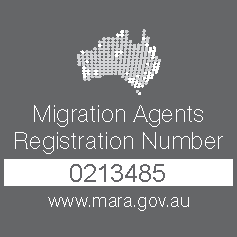While Australia’s Migration Program is currently on hold, there are some instances where visas are being granted where travel exemptions apply.Regardless of the reasons for a visa to be granted, all travellers entering Australia or in some cases anyone travelling from a Covid-19 hotspot into another state will have to undergo 14 days quarantine. For interstate travellers, quarantine could be either in staying in one’s own apartment within limits or in a hotel. For international travellers they have only the option of a hotel at this point. The quality of the hotel room varies.
The hotel quarantine program is designed to safeguard everyone against the spread of Covid-19. While there are many points of view in regard to the hotel quarantine program and its effects mentally and physically on participants, it’s a mandated requirement.
As registered migration agents, the team at Visa Solutions Australia must advise anyone travelling into Australia that they are required to complete 14 days of mandatory quarantine upon arrival. While necessary and currently part of the visa approval process, no one in Visa Solutions actually knew what exactly hotel quarantine entailed apart from having to spend 14 days in a hotel room. That was until a few weeks ago, when Dan Engles, Managing Director of Visa Solutions Australia was required to complete 14 days of hotel quarantine in order to enter Western Australia from Sydney.
The idea of hotel quarantine in Dan’s mind was pretty straightforward – 14 days in a hotel room. It wasn’t until he was inside his hotel room that the reality of hotel quarantine hit home.
A typical day in lockdown
For everyone, hotel quarantine involves staying in your hotel room and having meals delivered to you. You do not see anyone, and you cannot leave your room or frequent your balcony, should you have one. It’s up to each individual as to how they fill their day, whether it’s binge-watching streamed television, working or exercising.
For Dan, routine was key to getting through hotel quarantine. His day involved the usual morning wake-up routine, exercising within his four walls, working, taking meals, evening relaxation before going to bed and then waking up the next morning and doing it all over again.
Each day he would have to do his daily check-in with authorities. Those in hotel quarantine are given an app by WA police which performs random checks on quarantining travellers. Twice each day an alarm on Dan’s phone would sound and he would be required to check in and send a photo of himself in his hotel room to verify he has not breached quarantine orders.
On days 2 and 12 he was required to undergo Covid-19 testing which saw him able to leave the hotel in an Uber which took him straight to the testing site and then back to his hotel – following strict protocols of course. By day 12 testing, this outing took on a whole new meaning. It was a chance to converse with other people and get a very quick breath of fresh air between leaving the hotel and entering the Uber. The conversation with the Uber driver and the nurse who did the test took on a whole new meaning.
For someone like Dan who is quite active, enjoys interacting with other people regularly and has work to occupy his time, hotel quarantine was a very constrictive experience. Yet he was fortunate to be able to continue to conduct his work and remain productive and break up the potential monotony of the day.
Different people, different experience!
Not everyone is in the same position as Dan. When you consider hotel quarantine, the differing circumstances of each traveller comes into play. These circumstances can have an effect on each particular person and how they handle the situation.
Consider someone who has travelled from a country where the days entail hard physical labour that start early in the morning and conclude late into the day or evening. Where five-star hotels are only for privileged tourists. For someone who has come from a less privileged country, hotel quarantine in an Australian hotel may not seem all that bad. If suddenly you are thrust into a situation where you can sleep-in, watch television all day and the only physical labour you need to do is collect your meal from outside your door, this could potentially be one of the best experiences of your life!
But what of employees whose jobs require them to complete their work on-site? Labourers, mechanics, technicians etc. Aside from them not being able to complete their work and potentially having a negative impact on their mental health, their employers are required to pay their wages. Imagine the financial impact on a company paying any number of employees to sit in a hotel room while work sits incomplete.
Imagine the large number of VSA clients who work on a roster system that sees them arrive from their country and undertake work on a gas or oil rig for example. They go offshore, they go home for a while and then they return. Upon their return they are required to do another 14 days of hotel quarantine. In some cases, these employees are doing hotel quarantine every three to six months.
Each of these scenarios will affect people either negatively, positively or a combination of both. While the experience is different for everyone, for Dan it was an opportunity to gain a better appreciation of what his clients go through and be able to provide a level of empathy for his clients going through this experience.
If you would like to learn more about any aspect of migration, contact the team at Visa Solutions Australia on 1800 828 008.
Travel Exemptions
While Australian borders are currently closed due to the COVID-19 pandemic, travel exemptions may apply under the following circumstances:
– A traveller has a compassionate or compelling reason to visit Australia– Overseas workers holding a Subclass 482 or 400 visa are required to undertake a job in Australia that cannot be filled by a local employee.
Visa Solutions Australia has been successful in acquiring a broad range of exemptions, from critical workers to those needing to travel on compassionate grounds.







